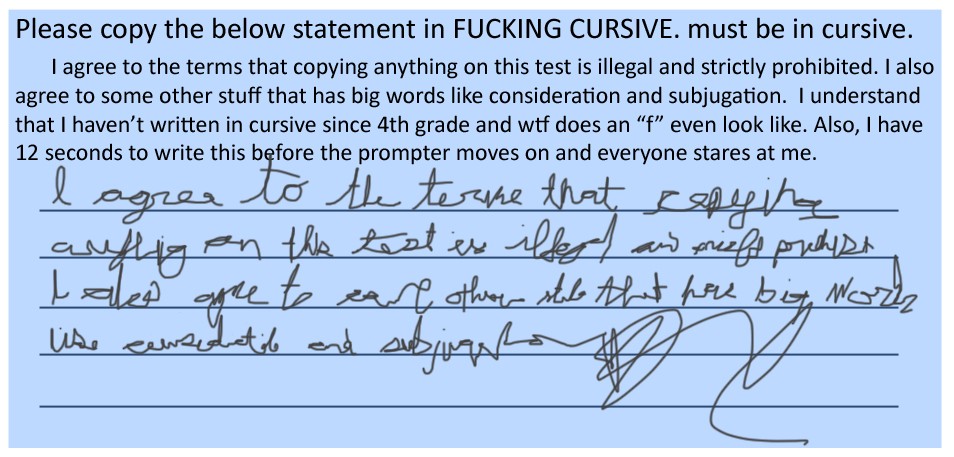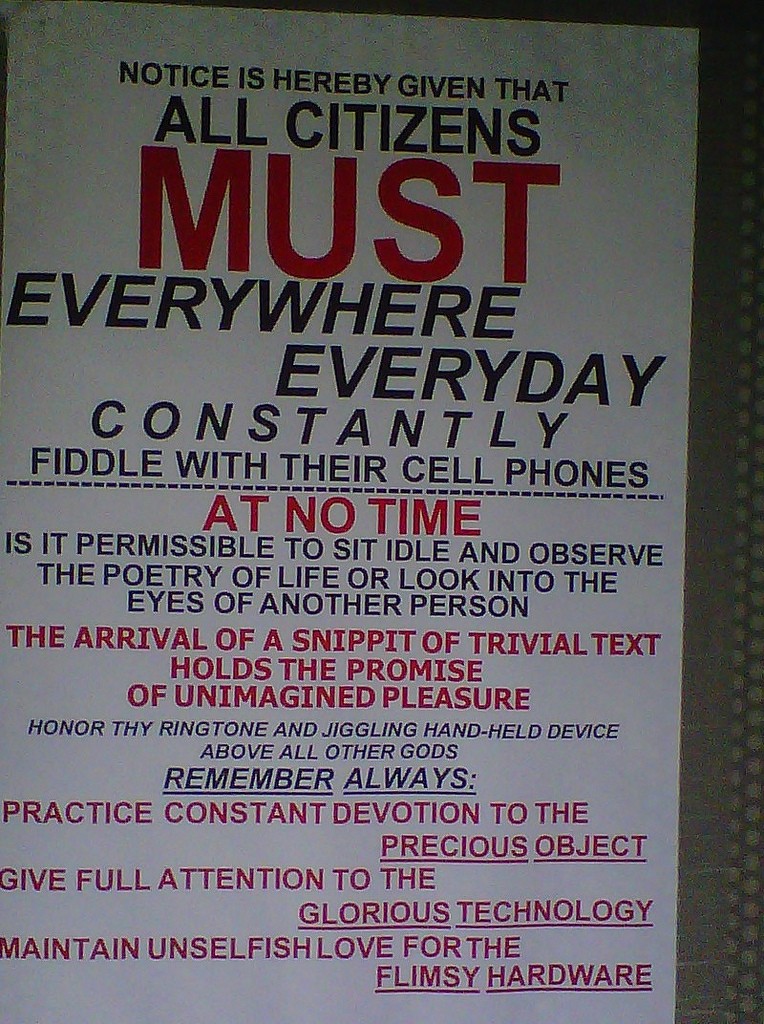I’ve been taking runs around my neighborhood in the morning for a couple of days. It’s absolutely exhilarating. I like the steep hills that ascend 10 or 12 feet so that you can’t see over the top from its base. It’s like you’re climbing up to something great thats waiting for you. And the sunrise on the horizon is something you don’t ever get to see unless you’re up at 6:30. Hey, people should do this more often.
But wait, they do. There are joggers that join track and field and do crosscountry and they must see magnificent sunrises all the time. I feel rather out of place talking about running when I really haven’t seen the sun for 6 months. If you think about it, it’s likewise socially unacceptable to discuss basketball unless you follow its teams and play weekly. There are usually two choices here: (1) you can devote your time and become an expert so you don’t feel out of place, or (2) you can choose not to join the conversation as to avoid being shunned. What’s more, I even don’t like talking about programming and computers with people who don’t have a definite history of affiliation with them. It’s like you’re expected to hold certain credentials before you can bring up a subject. To be friendly means to hold back your judgement in these awkward moments. But inside, this credential pressure makes people do some really stupid things.
Look: given the two options I mentioned, it follows that people will sometimes choose #1 and work to attain those valuable social credentials. When people ask you about your hobbies, you’ll put down jogging first. In class, you’ll awkwardly talk about the jogging you did over the weekend, and when people point out the high-level credentials offered by track and field, you’ll be inclined to run even more to make up for it. Of course, this kind of peer pressure may be just the thing you need to motivate yourself to go outside. Hey it’s not such a bad thing at all. But what if you wanted credentials for something else? I realize music, both playing and listening, is certainly a popular choice and this, in moderation, is not such a bad choice. But choosing credentials in gaming, or anime, or eating, or school: those will do horrible things to people. Hey, I know its comforting. It’s your excuse for everything: your hobbies, your music taste, your opinions, what you do with your free time. Society will reward you for having something that you’re obsessively interested in. When you hide behind your hard-earned credentials, you appear to be happy, satisfied, and never ever bored, because being busy doing something you “love” is the best feeling there is, from the outside.
One major implication of credential pressures, as I will call it, is its effect on blogging. Please take this lightly, I don’t mean to offend anyone. If you’re interested in gadgets and technology, you will blog to fit your credentials. Simply, you will regurgitate whatever you read from Gawker Media and add a few comments to your own. If you’re all about FUN, you’ll start a tumblr with all these FUNNY pictures because you know, obviously I have FUNNY pictures on my blog and you are laughing at my FUNNY pictures so that must mean I am a FUN person, because come on, look how FUNNY my blog is! Ooooh and the super-deep blog with your short aphorisms that have ultra-deep profound meanings about your life. Ooooooh, on the inside you HATE everybody but on the outside, you have to hide your messages in some obscure metaphor. Everyone will think you are so deep because look, nobody understands what you’re saying!
The way I see it, there are 2 false premises that cause this widespread disease on blogging, but they are both manifestations of credential pressures.
#1: Your stuff: yeah, it’s not up to par. If you’re making an image for yourself, well come on, you have to absolutely FLAUNT it. If something doesn’t fit in with how FUNNY, or deep, or sports-crazy, or techy you are, you can’t post that! Look, you have to keep your stuff high-quality and adherent to this narrow image that you want people to see you as. If you’re going to exploit the internet to improve your self-worth and confidence, you gotta do this right!
#2: Other people don’t care. This must be one of the most widespread myths ever, right behind potassium iodide. See typically, you can’t imagine that people will bother reading your blog, or deciphering your ultra-mega-deep hidden messages. That is, unless it’s super FUNNY or, you know, they don’t have to read it. I mean, just the fact that the background on my blog is url(/i_love_basketball.jpg) repeat; obviously tells you that I’m a crazy sports guy. So either you hide away and are discouraged from blogging anything that isn’t top-LOL quality, or you talk in jargon so complex that it serves the purpose without anyone even reading what you wrote.
It’s apparent that self-image is behind both of these problems. In fact, since this is such a golden opportunity, I will bring it up: these two premises are exactly why I disagree with Facebook.
See, Facebook is all about self-image. If I’m going to tell you something, why talk privately when I can publicize it for everyone to see? This way, everyone can see our FUNNY inside jokes and OH that FUN time that we had that other day. Ahh, we must be FUN to play with right? Oh wait, let me post the pictures of our pig-imitations in the mirror and we’ll really get this started. Simply, you put your opinion and forced laughter to the judgement of society. Ahh, look at my super-long list of friends. Theres 500 of them! Need a profile picture? Oh how about this one with me and my friends laughing and playing a game. Oh look how big our circle is! See, from my profile picture, you can tell that I have many friends and am very popular and cool. Wait, actually, I don’t think you can tell how buff I am from my normal pictures so I’ll take my shirt off and flex in the mirror.
Once you have left envy-inducing messages for everyone and have set your profile picture to match your desired self-image, there’s nothing left to do! Wait actually, you can blow some time exploiting your massive friend list in some antisocial games or even build up your empire by friending that one guy you talked to a couple weeks ago in the hallway. When there’s nothing left to do and your need for social recognition has not been satisfied, you’ll do the stupidest things to gather attention. It is awful what these social pressures will do to people.
Still, please don’t misunderstand what I’m saying here. Facebook is very successful and will probably be in the future as well. But I can’t agree with the immoral way they exploit your insecurities in order to lure people in. But hey, my integrity won’t hold up forever.
Facebook has accomplished what other websites couldn’t. It doesn’t advertise itself as “Build your self-image and improve your confidence!”. Of course not. They will tell everybody that Facebook is a communication tool. I mean come on, it’s like the only thing on their front page. People will of course, accept that Facebook is for communication, because they have an incentive to just follow along. I mean, who wants to tell people that they use a website to improve their self-esteem? It’s not like Facebook provides any kind of communication that IRC, IM, RFC822, and other protocols don’t. It’s just that email doesn’t give you an injection of dopamine every time you send a messag.... oooooh, that email felt great. It’s a great advancement in communication, but because of one reason only: virtually everybody has agreed to use it. It’s the only technology that combines deep social temptations with a top-tier communications system, and for that reason, it has successfully gathered everybody in one place. This is the critical thing that no other protocol, even email, has accomplished.


















